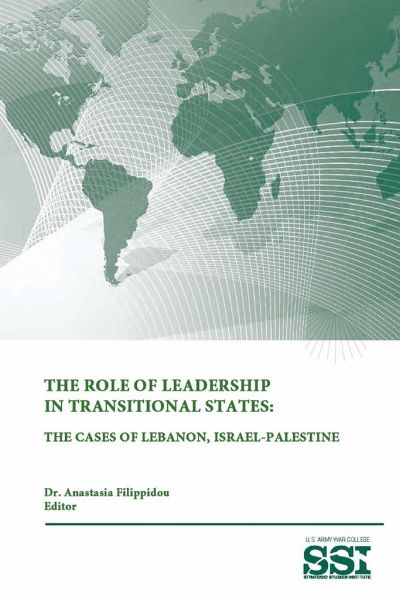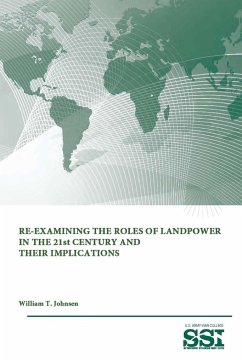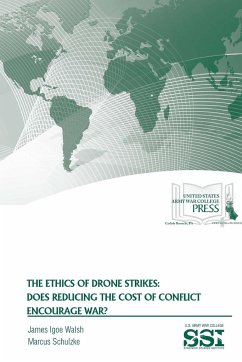
The Role of Leadership In Transitional States
The Cases Of Lebanon, Israel-Palestine
Versandkostenfrei!
Versandfertig in 1-2 Wochen
22,99 €
inkl. MwSt.

PAYBACK Punkte
11 °P sammeln!
The United States plays a significant role in the Middle East. When dealing with the region, often the dilemma is: should there be a strong or weak regional leadership in order to facilitate a transitional phase? However, this decision is contextual, and a state must know what is its own foreign policy. To promote its national interests in the long term, the United States might have to prioritize the local interests and almost altruistically help the regions overcome their internal divisions and problems. In this book, Dr. Anastasia Filippidou reviews the main leadership theories in order to s...
The United States plays a significant role in the Middle East. When dealing with the region, often the dilemma is: should there be a strong or weak regional leadership in order to facilitate a transitional phase? However, this decision is contextual, and a state must know what is its own foreign policy. To promote its national interests in the long term, the United States might have to prioritize the local interests and almost altruistically help the regions overcome their internal divisions and problems. In this book, Dr. Anastasia Filippidou reviews the main leadership theories in order to set the foundations for analysis of asymmetric leadership in transitional processes. The report also examines the different leadership types and highlights that, with the exception possibly of toxic leadership, it is difficult, if not impossible, to determine that a specific type is better than another in every situation.












